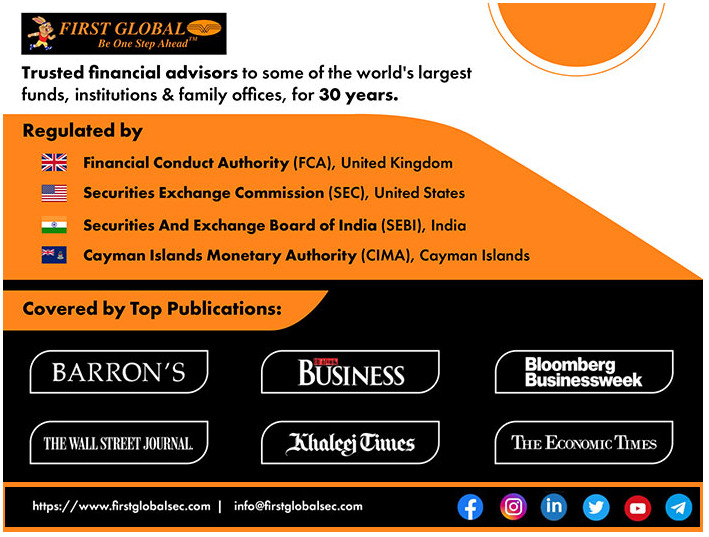India has more than 1.5 lakh people dying each year in road accidents - among the highest in the world, even on the basis of percentage of population.
Now suppose, from tomorrow, all vehicles are changed to self driving ones. Let us say, the death toll drops to 50,000.
What will the newspaper headlines be?
Think carefully before you read further.
Will the headlines be, "Self driving vehicles reduce death toll by two thirds"
Or will it be, "Self driving vehicles kill 50,000 Indians every year"
My guess is, it will be the latter.
Although they do not deal with the specific example, in concept, this is a paradox that Daniel Kahneman, Cass R. Sunstein and Olivier Sibony talk about in their book, 'Noise'.
They give example after example of various areas of human endeavour, even those far away from the conventional number crunching, where well-constructed algorithms consistently outperform human beings - that too human beings with considerable experience and expertise.
For example, whether an accused should be granted bail or not appears to be a problem that only a human being with great judgement (pun intended) should tackle. The test is whether a person out on bail will commit another crime.
Actual studies show that even a very simple algorithm which may take into account only one or two factors, like the age of the accused and their previous crime record, outperforms skilled judges.
So also, cases like corporate recruitment or deciding on insurance premiums. Simple, at times even simplistic, algorithms outperform experienced human beings.
Why does this happen?
One of the reasons is that while we think humans bring expertise and nuanced judgement into the mix, what we forget is that they also bring in 'noise'.
What is noise? In simple terms, noise is undesirable variability, over and above variability which may be due to bias (eg, a judge being biased for or against a gender, race or caste).
Bias is easily understood but even without bias, various judges or insurance professionals will come up with different answers to the same question. Even worse, the same human being will come up with different answers depending on totally unrelated variables like whether they are hungry, what the weather is, what their mood is like and so on and so forth. We all understand this phenomenon at an individual basis that is, our performance is impacted by our own daily mental makeup. This noise is both across different individuals in the same profession or category as well as how a particular individual performs or decides in various instances.
It is this noise that algorithms or machine-led systems reduce and that accounts for their superior performance.
While the machine-led systems do not have all aspects of the expertise of a human professional they also do not have this random variability or noise. The net impact is that the machine-led systems perform better. Just as in our example, the self driving cars performed better than human drivers.
That being the case, what is the issue? Why don't we outsource many of these functions to machine or computer led systems?
The anomaly lies is how we judge the competing systems.
We intuitively know that human beings will make errors but we consciously or not, expect a machine led system, say an Artificial Intelligence based system, to be error free.
We are willing to ditch it at the first mistake: the first wrong diagnosis based on a mamogram or the first accused out on bail who commits a crime. Never mind that doctors and judges are also error prone.
In short, instead of evaluating whether the machine works better than the human being, we expect the machine system to be perfect.
This is completely irrational, as the rational thing we have to test is whether the machine system improves on the alternatives of the existing system, rather than whether it is completely error free on a standalone basis.
This type of thinking leads to wrong choices as we may abandon an algo/ machine even if it's better than what was being done earlier.
That's why we started with the example of self driving cars, where we aren't willing to live with a single fatality even when human drivers make many more errors and cause more deaths.
Moral of the story: when evaluating alternative processes or systems, always pause and think - especially whether you are using the same yardstick to evaluate all the systems or you have unrealistic expectations of one.
What does it have to do with investing? In investing as well, human beings are prone to many limitations like the amount of data they can process plus a huge variety of cognitive biases, like the Recency Bias, the Survivorship bias, Loss Aversion, Endowment Bias, and many more.
All of these limit how well human beings can perform because they tend to drag down the performance over a period of time plus of course is the element of noise.
Try giving the same company details and financials to 5 experienced analysts and see whether all of them come up with the same analysis. It is almost impossible!
That is where a systematic approach helps. Even if the system does in a mechanical fashion what the analyst or fund manager says that they are doing and even if it is somewhat more simplified than what the fund manager claims to be doing, the very fact that it is being done in a systematic manner with no random moves or noise, the system is likely to outperform the human being over a period of time.
However, will the system never make mistakes or not under perform in any time period? No.
But that is the wrong criteria to use to judge whether an artificial intelligence or machine learning system is good.
As in anything, if you ask the wrong question, you can never go right.
If your question is whether switching to an artificial intelligence system will eliminate mistakes? Therefore if it doesn't, you will not use that system.
What you need to do is change the question and ask: Is this system an improvement on the earlier or existing systems? That is when you will get the right answer.
Therefore, the right way is to evaluate whether the systematic approach works better than the human approach over a period of time rather than expecting the non human approach to be perfect and to have all the answers all the time which is anyway never possible in the market as there are things which cannot be known in advance, no matter how much information you gather and how well you analyse it.
For example, we at First Global, use a human plus machine model where most of the heavy lifting is done by the machine.
Does that have a perfect track record? No, but the answer to the question: Is it doing a lot better than what human fund managers are doing specially on a risk adjusted basis? ...it is a unequivocal YES.
If you ask a wrong question you can be lead astray. Hence, always stop and think on what your end objective is and whether you are asking the right question to get to that.
Elsewhere in the book have written more about how human plus machine systems work.
To learn more about human/machines/ combo systems and how to use them for investing:
From the desk of
Devina Mehra
If you want any help at all in your wealth creation journey, in managing your Investments, just drop us a line via this link and we will be right by your side as your wealth advisor, super quick!
Or WhatsApp us on +91 88501 69753
Chat soon!


Economists Think Dollar's Fall May Explain the Recent ‘Rally’ by Steve Liesman
Einstein taught us about relativity in nature. Now come Devina Mehra and Shankar Sharma of First Global to teach us about relativity in financial markets -- and raise some serious questions about just what is driving stock prices.

First Global reports are quite credible and, on occasion, more than that.
What prompts this mention is Intel's earnings report and the fact that First Global has had a pretty good bead on the company and its stock.

AMD up again following First Global upgrade to ‘buy’ (AMD) By Tomi Kilgore
Analyst Kuldeep Koul at First Global upgraded Advanced Micro Devices (AMD) to "buy" from "outperform," given the "exceptional traction" that the chipmaker's Opteron line of processors has been able to get.

Baidu Climbs on First Global’s ‘Outperform’ Outlook
Baidu Inc., the operator of China’s most-used Internet search engine, rose to the highest price in two weeks after First Global rated the shares “outperform? in new coverage.

Personality counts: Walmart's frugal, but Target charms
"It's better to take a slight hit on [profit] margins and keep on moving and inventing," says First Global Securities. And at least for now, Target is inventing in a way that appeals to consumers with money to spend.

Dead Batteries
At 11 times trailing earnings, Energizer is cheaper; Gillette's multiple is 25. But cheaper doesn't mean better, says First Global.

Bipinchandra Dugam @bipinchandra90
@devinamehra @firtglobalsec
invested in both GFF-GTS and Super I50. Thank you very much for such wonderful investing experience with completely new approach. In my 15years of investing first product I felt which close to what customer want.

Shishir Kapadia @shishirkapadia1
@firstglobalsec @devinamehra
by far you are the best, I have not come across transparency, acumen, global expertise, exposure, protection of capital, delivering return from any fund/ fund managers. Invested very small size in 3 products will keep on increasing it over the period

Piyush Bhargava @PiyushB88762654
@devinamehra @firstglobalsec
Thanks you team FG specially Devina, my investment doubled in less than 3 years in SDPB As a investors & PMS distributor of your product looking to have a long-term relationship with the company.
@KarmathNaveen the person with whom I always interact

Sumeet Goel @GoelSumeet
Very happy & relaxed to be invested with first global pms

Shishir Kapadia@shishirkapadia1
Congratulations on super performance, above all transparency and systematic process are unmatchable.
One must opt this, if person consider him/her self as an investor. Very happy to be part of this since invested. FG has managed worst year (ie 2022) so efficiently and skillfully.

SY @SachinY95185924
With so much of volatility in the market, risk management is very important part & considering that FG is doing awesome work!!! Kudos to you Chief

Amit Shukla @amitTalksHere
Truly outstanding. As a retail subscriber to #fghum #smallcase, I can vouch for the Nifty beating returns (8% vs 3%) in last 1 year. Keep up the awesome work @firstglobalsec
We can load above testimonials on site as a scroller, and just below that we can add a section for compliments . Below tweets are comments and praises are related to our content, performance and some our direct compliments to you.

ADIT PATEL @ADITPAT11226924
Good team...
Special mention @KarmathNaveen .. he is soo helpful anytime of the day or night..

Hindustani @highmettle
Bought Peace with FG-Hum.Moving all funds from DIY investing to well managed and diversified PF at low cost.
It has doubled almost, excellent pick.Every small investor must invest in her FG-HUM Smallcase.

Suresh Nair @Suresh_Nair_23
I have 8 small cases and your has been the most rewarding ones .. thank you Devina.

Sayed Masood @SayedM375
There is absolutely no doubt that she is one of the best investors of India in modern times but more importantly, she shares the most sincere and sane advice with retail investors.

SY @SachinY95185924
Wow Superb Returns🔥 Congratulations Chief for being Number 1 among all PMS!!!
You are one of the sharpest mind in Global Stock Market

AnupamM @moitraanupam
Congratulations Devina, results talk in itself!

Abhishek @simplyabhi21
Congratulations ma’am @devinamehra ! The consistency you have in maintaining the top rank position is outstanding! 👏

Mihir Shah @Mihir41Shah
We are learning More about markets (& Life ) thanks to U than we learnt in our Professional courses.A BIg Thank You, Wish all get Teachers Like You!!

Sumit Sharma @MediaSumit
"The ability to be comfortable with being outside consensus is a superpower in investing...and in life." Devina ji hits the nail on its head!

Majid Ahamed @MajidAhamed1
Congratulations @devinamehra mam! All the best for long term returns as well.

Vinay Kumar @VinayKu05949123
This is the wonderful session I have ever attended till date. One of the most fruitful hour of my life. Devina madam, ur clarity on financial mkts is simply superb.The way u portray the facts supported by "data" about stock mkts is really astonishing.I will listen again.Thanks.

VIJAY @drippingashes
I loved to read your journey, insight and philosophy. It's a pleasure to read and know of your takes on market and life.

MNC🏹 @Focus_SME
Check & follow @devinamehra's timeline for lots of post debunking such rosy stories. Also, she gives amazing 🤩 sector directions/hints.

KLN Murthy @KLNMurthy2016
Good actionable insights, great article!

Suresh Nair @gkumarsuresh
Devina Madam is simply terrific... good knowledge, straight and simple thinking.
Very difficult to emulate such traits. I listen her past interviews from youtube.
Respect...!!!!

DD @AliensDelight
One of the brightest minds in the world of finance :)

Radhakrishnan Chonat @RCxNair
📣 Calling all investors! Just had an incredible interview with @devinamehra, Chairperson and MD of First Global. We discussed the importance of global diversification, effective asset allocation, and the risks of sitting on the sidelines. Trust me, you don't want to miss this!

siddarthmohta @siddarthmohta
Excellent performance. Flexibility is the key as you have mentioned it earlier also. Cannot have finite rules for infinite mkt opportunities.

Boom (বুম)@Booombaastic
To be honest, the insights which Devina madam brings in is very enriching..have learnt a lot from them...

Himanssh Kukreja @Himansh02428907
One of the most accurate analysts :)
I always look forward to you interviews mam

Abhijeet Deshpande @AbhijeetD2018
Madam, It is always a treat to read your insight, not only on business but on other topics also!!

Dada.AI @dada_on_twit
Thanks for this wisdom ma'am. Always love hearing your thoughts on everything equity. :-)

adil @zinndadil
Excellent points!
Can clearly feel this thread is a product of marination of many books and years of experience. 👍

Kamal thakur @Kamalgt10
Superb !!
Your knowledge, analysis & articulation is simply great 👍

Tanay @Tanay36232730
Follower on Twitter and Subsciber on YouTube of First Global, really helping me in my investment desicion. Thanks
Copyright 2019, All Rights Reserved. Developed By : Hvantage Technologies Inc. Maintain By : Aarav Infotech